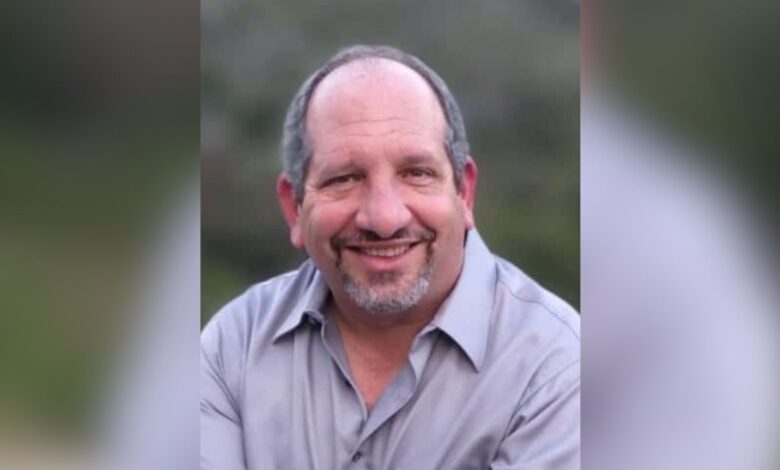Richard Shulman: The Man Behind a Controversial Medical Vision

Have you ever heard of someone whose story feels like a mix of innovation, controversy, and comeback? That’s exactly how people describe Richard Shulman. In recent years, his name has appeared in conversations about cutting-edge health technology, business ambition, and public debate.
Richard Shulman isn’t your typical corporate executive. He’s known as the CEO of Richard Medical Technologies Group, a company that gained attention for developing advanced medical systems powered by artificial intelligence. His work attracted both praise and questions — praise for pushing healthcare forward, and questions about the storm that followed during the pandemic years.
Let’s take a closer look at who Richard Shulman is, what his company does, and why people can’t seem to stop talking about him.
Early Ideas and the Birth of Richard Medical Technologies Group
Every big story starts with an idea. For Richard Shulman, that idea was simple but bold — use technology to make medical testing faster, smarter, and more accurate. His company, Richard Medical Technologies Group, was built on that belief.
The company became known for its AI-driven diagnostic systems and microarray-based testing tools. These tools aimed to help doctors detect diseases earlier and with fewer errors. Imagine going to a clinic and getting reliable results in minutes instead of waiting days — that’s the kind of future Shulman wanted to build.
During the height of COVID-19, his company rose quickly. Hospitals and clinics were desperate for faster testing and digital solutions, and Shulman’s team stepped in. They offered technology that could analyze samples faster and even provide remote support for healthcare staff. For a time, it seemed like everything was going perfectly.
The Rise During the Pandemic
When the world was struggling to manage the pandemic, Richard Shulman’s company became a symbol of hope. The group rolled out innovative tools and partnered with medical centers that needed help.
Under his leadership, clinicians were trained to use new digital systems, and AI algorithms helped handle the massive testing load. Reports described how the company’s quick response helped many health providers adapt during chaotic times.
Shulman was often praised as a forward-thinking leader — someone who could mix business with real-world care. For many, he represented a new kind of health entrepreneur, one who wanted to merge compassion with innovation.
But like many stories that rise fast, this one also took a sharp turn.
The Legal and Ethical Storm
After the early success came the headlines that no CEO wants to see. Richard Medical Technologies Group became linked to legal controversies involving alleged testing fraud and regulatory questions. Investigations and public scrutiny followed, raising doubts about how some operations were handled during the crisis.
For Richard Shulman, this was a turning point. The same spotlight that once made him a hero now became a test of his credibility. Some saw him as misunderstood — a creative mind trapped in a storm of corporate pressure and bureaucracy. Others were less forgiving, calling for accountability and transparency.
Through it all, Shulman maintained that his mission had always been to improve healthcare and rebuild trust through open communication and innovation.
Rebuilding Trust and Looking Ahead
What do you do when your company faces a storm? According to those close to Richard Shulman, you rebuild — piece by piece.
Since the controversies, the company has reportedly undergone major restructuring. Shulman and his team started publishing white papers and third-party validation reports to prove their technology’s reliability. They began working on a new oncology screening platform, aiming to show the medical world that they still had something valuable to offer.
In 2025, this new direction seems to be gaining quiet attention. The focus has shifted from damage control to purposeful innovation — the kind that blends science, ethics, and transparency.
A Leader Who Refuses to Give Up
When people talk about Richard Shulman, one thing everyone agrees on is his persistence. Even after facing serious challenges, he didn’t walk away. Instead, he chose to rebuild.
He spoke in interviews about learning from mistakes and listening more to experts, regulators, and the public. Many leaders disappear when trouble hits, but Richard Shulman took the opposite route — he stayed visible. He met with healthcare professionals, explained his plans, and promised to do things differently.
That kind of honesty and responsibility isn’t always easy to find in business. His story shows how determination can turn failure into a second chance.
His Personal Approach and Leadership Style
People who have worked with Richard Shulman often describe him as focused and full of energy. They say he’s the kind of person who always asks questions like, “How can we make this faster? How can we make this better?”
He’s known for mixing technology and empathy — two things that usually don’t go together easily. Shulman believes that healthcare shouldn’t just be about machines or data. It should also be about understanding people.
This mindset seems to guide how he runs Richard Medical Technologies Group today. Every project, from cancer detection tools to digital diagnostics, is built with both science and compassion in mind. His goal is simple: to make healthcare more human, even when powered by AI.
Learning from the Past
It’s no secret that the past few years have been tough for Richard Shulman. But instead of hiding from it, he has tried to use those lessons to improve.
He now talks more about ethics, safety, and transparency. For example, when launching new products, the company focuses on independent testing and clear documentation. This helps rebuild trust not just with doctors, but also with patients.
In one internal meeting (as shared by staff in interviews), Shulman reportedly said, “Technology without trust is useless.” That line seems to capture what this new chapter of his journey is all about — earning back respect through action, not just words.
The Future of Richard Medical Technologies Group
So, what’s next for Richard Shulman and his company? According to recent reports, the focus is on growth through innovation, but with care and compliance at the center.
The new oncology screening platform is one of their biggest projects. It uses AI to identify early cancer signs from small data samples, potentially helping doctors save lives faster. If successful, it could reshape how diagnostic medicine works in the next few years.
At the same time, the company is working on building stronger relationships with universities, hospitals, and regulators. This time, it’s not just about moving fast — it’s about moving right.
The Man Behind the Headlines
Outside of his corporate life, not much is publicly known about Richard Shulman’s personal world. He tends to keep his private life quiet. However, people close to him often mention his passion for learning, mentoring, and staying curious.
He reportedly spends time supporting young professionals who want to enter healthcare technology. His message to them is simple: “Stay honest, stay humble, and never stop learning.”
In a world where success stories often hide their struggles, Shulman’s journey feels more real — a reminder that even leaders make mistakes, but what matters most is what they do next.
Final Thoughts
Every name in the world of innovation comes with a story — sometimes bright, sometimes messy. Richard Shulman is one of those names. His journey shows both the risks and the rewards of trying to change an industry as complex as healthcare.
He started with a dream to make medical testing smarter. Along the way, he faced setbacks that could have ended everything. But instead of giving up, he chose to rebuild. Today, in 2025, his company seems more focused than ever on using AI responsibly, rebuilding trust, and shaping a better future for patients.
The story of Richard Shulman isn’t just about business — it’s about resilience, learning, and the courage to begin again. And maybe that’s the kind of inspiration we all need in today’s world.



